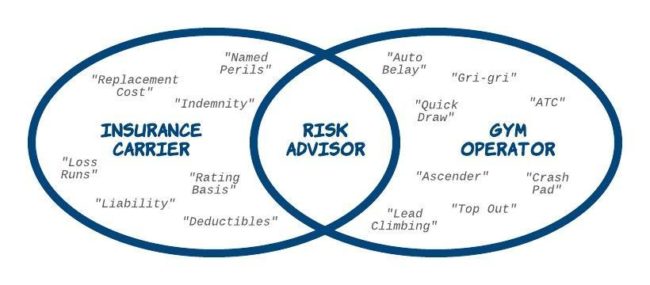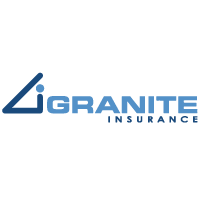
A common analogy in the insurance world is that insurance is like a parachute―you hope you won’t ever have to use it, but when you need it you want to ensure it’s packed right. Of course price is always a key consideration, but with something that crucial to your (or your business’ financial) survival, you have to balance the importance of price with the need for quality and thoroughness.
Have you ever packed a parachute before? Our guess is, for most of you, the answer is no. That’s the job of a professional. When it comes to insurance professionals, climbing gyms are looking for a partner that can speak to both aspects of the role. That partner must have expertise in the insurance world and also must be well versed in the at-height and operations world. A needle in the haystack! There aren’t too many of those around.
Granite Insurance is that needle in the haystack. With over 250 clients across the country in related industries and almost 10 years of experience working in this sector, they’ve keyed in on what a successful client-advisor relationship should look like for a premier gym operation.
Building A Relationship for the Long Haul
Ruthie Lile, who leads Granite Insurance’s climbing gym vertical, says “The role of an insurance agent and risk advisor has changed significantly over time. It can’t just be a once a year insurance transaction but needs to be an ongoing conversation through the year where a much more comprehensive risk mitigation strategy is discussed.”
Especially in industries like ours, that kind of guidance is key. Risk mitigation strategies (and therefore insurance implications) are present in just about everything gyms do―the creation of employee handbooks, formulation and implementation of operational procedures, determination of waiver content, brainstorming of emergency protocols and response plans, training of staff, interacting with participants―the list can keep on going. Your advisor should be present in all of these strategy conversations.
After a gym is open and operating, these needs grow and morph, and new challenges and ideas constantly enter the mixing bowl that need to be addressed. Your agent and advisor should be on speed dial in your phone, someone you can lean on consistently to address these questions. Your advisor can even offer management training sessions on subjects like how to deal with a participant or an employee injury.
While your agent/advisor does get paid via commission from your insurance policies, it’s in everyone’s best interest to keep your insurance costs down because that will result in a longer-standing and more quality relationship overall. Being a key part of these non-insurance risk mitigation strategies not only helps further the quality of that relationship, but also reduces the likelihood of insurance needing to respond to a claim in the future―therefore, keeping premium costs down for you.

Asking the Right Questions (Sooner and More of Them)
A lot of your agent’s job also revolves around education. They are either educating the insurance carrier about the climbing industry, educating gym owners and managers on how the insurance world works, or furthering their own education in both. It pays to have a curious advisor who asks questions and who asks them early on in the process. How many of you readers have had an insurance proposal provided to you just a week or two before the policies bind, leaving your hands tied without the runway needed to explore other program options?
The conversation around your insurance program should ideally begin at least 4 months prior to your current policy’s expiration date, giving you plenty of time to discuss options with your advisor and make the best decisions for your business. The more questions your advisor asks you, the more they can tailor your program to your unique operation, and the less likely they are to leave you with unintentional liability exposures.
And on the other side of education needs, the more your advisor can educate the carriers they work with in the climbing industry, the more it can positively affect your insurance premium. Carriers price for the unknown―if a risk scares them, they’ll either turn the opportunity down or they’ll accept it but charge more premium for it. With education comes understanding, and with understanding comes opportunity for premium management. Insurance premium determination is a complex calculator with many different factors taken into consideration, but carrier education is one of those factors that should be paid close attention to.

Supporting Gym Development
The Riveter is one of the climbing gyms making use of this trusted approach to client/advisor relationships. First opened in February, The Riveter is a premier indoor climbing gym and unique outdoor bike park combo located in Mills River, North Carolina. The gym boasts over 16,000 square feet of climbing terrain, plus a dedicated training area―with a Kilter board and Tension rungs―and kids climbing cove. There was a long runway to launching such an involved project, a process that lasted over two years as the gym was under construction and planned out the details of its operations.
From conception, Granite was instrumental in the development of The Riveter’s risk management program and secured themselves as a true part of the team rather than just a vendor to the gym. They talked through the evolution of an insurance program―what policies should be in place pre-construction, during construction, and then finally during operations. Granite also provided guidance on how to budget for insurance and on the creation of policies and procedures, including manuals and emergency action plans. They facilitated an in-person loss control visit with an insurance carrier, and once The Riveter was open they offered management training on how to deal with a participant or a staff injury.
“Working with Granite Insurance has far exceeded my expectations of what my relationship with my insurance agent and risk advisor should look like,” says Elizabeth Jackson, owner of The Riveter. When Covid-19 hit the world, Granite’s team reached out to Jackson pro-actively to discuss reducing her revenue & payroll projections, aiming to assist with any possible cash flow hurdles that might arise. These are the types of actions you should expect and the type of support you should be receiving from your advisor.
Starting the Conversation
Granite Insurance works in all insurance coverages applicable to the climbing gym industry and offers a premier program to those gyms who want a true risk management partner. They believe in quality, and they seek out gyms who share that sentiment and who want to excel in their risk management plan and lead the industry. To begin a conversation with Granite Insurance about your own risk management program, Ruthie Lile can be reached at rlile@graniteinsurance.com.

Granite Insurance’s client approach is to understand the unique needs of your business and tailor a risk management and insurance program that is designed around those needs. Granite is a part of Keystone Insurer’s Group, which is one of the largest insurance agency organizations in the United States. This resource, combined with their industry-specific expertise, makes Granite Insurance highly qualified to design and implement a risk management and insurance solution for your climbing gym. Granite has formed climbing gym-specific programs with nationwide carrier partners, and they advocate for the climbing gym community in the insurance world by focusing on client and carrier education.







